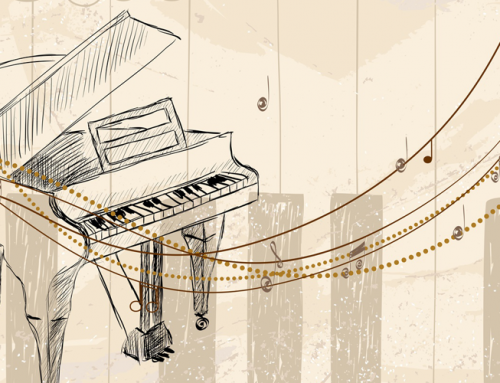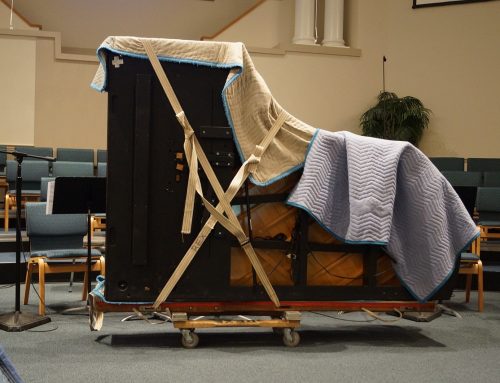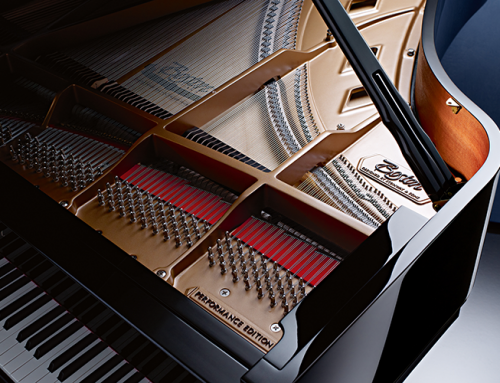We often receive questions about the tone, tune and responsiveness of pianos. To help all of our clients understand their piano, today, we will try to answer the question: “Will my piano play better on hot or cold days?”
The answer is not quite as simple as “yes” or “no”. There are many factors that affect “how” pianos play. The tune of a piano is less related to hot or cold and more related to humidity which can vary by the seasons. Higher temperatures generally come with higher humidity and can cause the bushings in a piano to swell. Bushings are hinges in the mechanical assembly of the piano which allows rotation of one part around another. When these swell, it increases the amount of time between the finger striking the key and the hammer hitting the string to play a tune. Often people will comment that their keys are lagging or “sluggish” and this is the cause.
Effects of heat and humidity on a piano.
According to the Piano Technician’s Guild, “Swelling and shrinking of the piano’s soundboard is the most immediate and noticeable effect of humidity change.” Warm weather tends to expand woodwork and can cause changes in tension. These changes in tension can lead to more pressure being exerted on the strings causing the pitch of the piano to go up. Conversely, in the winter, the air is colder and drier and pressure on the strings can drop causing your piano pitch to go flat.
Humidity can also cause rust and corrosion to any metal parts of the piano. This will prevent it from creating the sound it was built to make. Additionally, it can cause the pin block (piece of wood that holds the tuning pin) to break down, crack or expand. When this happens, the pins can shift, move or slip out completely causing major damage to your piano. Tuning can help, but the best way to avoid this type of damage is to adequately control the humidity in the air nearest to your piano.
Do not assume that hot dry air is better for your piano. Positioning your piano over any floor air duct can shorten the life of your piano by nearly half. The air blowing directly on your piano can force frequent changes in the wood swelling, as well as prompt the glue to dry out and crack too quickly.
How to avoid temperature/humidity damage to your piano.
- Play your piano regularly. Playing a piano also affects its ability to stay in tune. Hard and frequent playing will help to settle and stretch the strings.
- Tune your piano regularly. Having a piano tuned often, especially after season changes, can help to reduce the effects of humidity on your piano’s tension.
- Avoid positioning your piano near direct sources of heat or sunlight such as fireplaces, windows, doors or air ducts.
- Control the humidity in the air. Consider investing in a humidifier or a dehumidifier for your home, depending upon your local area weather conditions.
- Install an “in piano” humidity control system. One of the more popular systems is the Piano Life Saver.
- Utilize moisture absorbing pouches to reduce humidity in high humidity seasons or areas. Music Sorb is one of the most popular.
A stable environment for temperature and humidity will prolong the life of your piano and preserve the viability of its parts, joints and finish throughout the years. Placing your piano in the right location, playing it often and tuning it on schedule will allow you to love your piano for a lifetime!







Leave A Comment